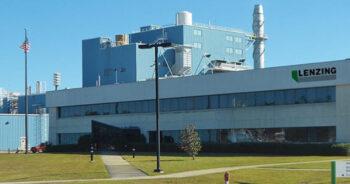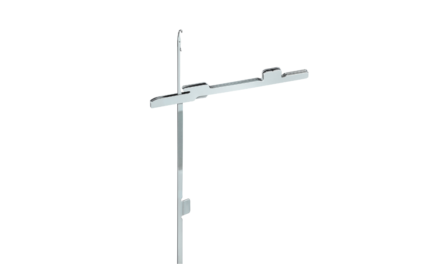 Austria-based Lenzing Group, a leading supplier of sustainably produced specialty fibres, has been recognised for leadership in corporate transparency and performance on climate change, forests, and water security by global environmental non-profit CDP, securing a place on its annual ‘A List’.
Austria-based Lenzing Group, a leading supplier of sustainably produced specialty fibres, has been recognised for leadership in corporate transparency and performance on climate change, forests, and water security by global environmental non-profit CDP, securing a place on its annual ‘A List’.
Through significant demonstrable action on reducing climate impacts, water security risks, and deforestation, Lenzing is leading on corporate environmental ambition, action, and transparency worldwide, according to a report.
“We are very proud that we have now been awarded a triple A rating by CDP for the second time in a row. The rating shows that we are already on a very good path with our sustainability strategy and that the steps we are taking as the Lenzing Group to continuously improve and find solutions to the most pressing problems of our time are being seen and honoured,” said Stephan Sielaff, CEO of the Lenzing Group. “We are working hard to make our industries even more sustainable and to drive the transformation of the textile business model from linear to circular. Further efforts from the entire industry are needed for this transformation to take place.”
“CDP saw environmental data this year, including 70 per cent of European companies by market value. COP27 showed the need for transformational change is more critical than ever if we are to limit warming to 1.5°C. I’m therefore delighted that European companies make up nearly half of all ‘A List’ companies around the world, including 15 with two A scores and eight with triple A scores for climate change, forests, and water security leadership. We must cut emissions by half and eliminate deforestation by 2030, alongside achieving water security on the same timescale—there is no route to 1.5°C without nature,” said Maxfield Weiss, Executive Director CDP Europe. “With the EU’s ground-breaking new reporting regulation, the CSRD, now agreed, CDP’s A List companies are showing they are ahead of the game—taking clear action to reduce emissions and to address environmental impacts throughout their value chains. This is the type of environmental transparency and action we need economy-wide to prevent ecological collapse.”
Wood, the pulp derived from it and water are some of the most important raw materials for the sustainable production of cellulosic fibres from Lenzing and also part of the most important focus areas of the Lenzing Group’s sustainability strategy. Lenzing assumes responsibility by striving for sustainable procurement based on environmental certificates and responsible and efficient use of these valuable resources.
Lenzing sources wood and dissolving pulp from sustainably managed forests and plantations and not from ancient, protected, or endangered forests. Lenzing’s biorefinery process ensures that 100 per cent of wood constituents are used: to produce dissolving wood pulp for fibre production, biorefinery products, and bioenergy.
With its Refibra and Eco Cycle technologies, Lenzing offers solutions for transforming the textile and nonwovens industries towards a circular economy. In line with its vision for the circular economy, “We give waste a new life. Every day.” Lenzing is driving the industry toward a full circular economy by striving to give waste a new life in all aspects of its core business and developing circular solutions together with potential partners inside and outside the current value chain.
Transparency forms the basis for credible sustainability performance and also creates trust among customers and consumers. That is why Lenzing is committed to promoting digital solutions throughout the supply chain and improving transparency and traceability in the textile and nonwovens industry. This is crucial as only an honest engagement with the industry can ensure traceability that verifies the origin of Lenzing fibres throughout the supply chain, all the way to the finished garment.
Lenzing’s fibre identification system and e-branding service form the basis of the overall approach to transparency, while the TextileGenesis blockchain project leverages data to enable maximum traceability. This demonstrates Lenzing’s leadership in a very opaque industry and offers products with better sustainability credentials.
A more comprehensive understanding of Lenzing’s suppliers as well as downstream customers is equally critical to minimising the Lenzing Group’s overall environmental impact, leading the company on the right path to achieve a low-emission and CO2 neutral footprint by 2050. Close digital connections throughout the network help to close loops in an efficient and holistic way and facilitate the transition from a linear to a circular supply chain, added the release.
The world’s economy looks to CDP as the gold standard of environmental reporting with the richest and most comprehensive dataset on corporate and city action. In 2022, over 680 investors with over $130 trillion in assets and 280 major purchasers with $6.4 trillion in procurement spend requested companies to disclose data on environmental impacts, risks, and opportunities through CDP’s platform. A record-breaking 18,700 companies responded.





















